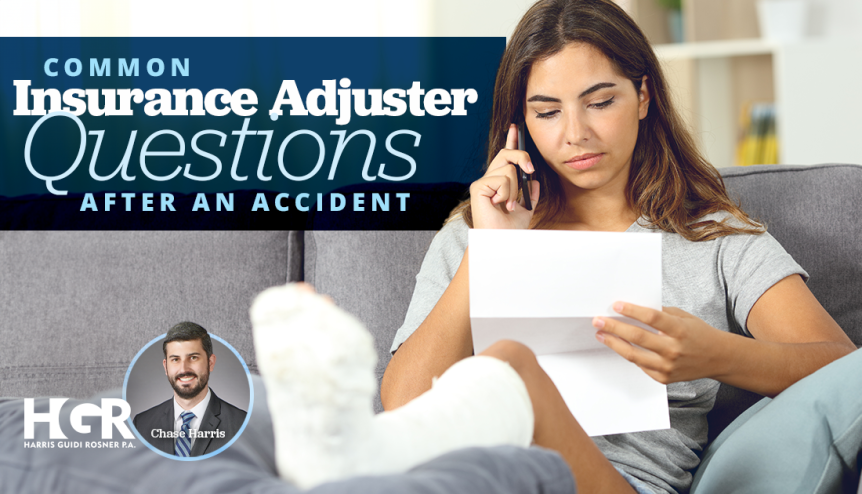After an accident, one of the first things you’ll likely face is a call from an insurance company representative. While it might seem like a straightforward step in the claims process, the answers you provide can significantly impact the outcome of your case. Insurance adjusters are trained to minimize payouts, and they might ask questions designed to elicit responses that could reduce the compensation you receive. Here’s a guide to some common questions insurance companies ask after an accident and how to respond to protect your interests.
“Can You Describe How the Accident Happened?”
Why They Ask:
Insurance companies want to hear your version of events, which they may use to determine liability and assess the validity of your claim.
Best Answer:
Provide only the basic facts without admitting fault or speculating about the accident. A good response would be, “The accident occurred at [location] on [date] and [time]. I was [direction] when the collision happened.” Avoid detailed descriptions that could be misinterpreted or used against you.
“What Were Your Actions Leading Up to the Accident?”
Why They Ask:
They are looking for any indication that you were distracted or otherwise at fault.
Best Answer:
Stick to the facts and avoid admitting any fault. A concise answer is best: “I was driving within the speed limit and following traffic laws.” Do not elaborate unnecessarily.
“Have You Seen a Doctor for Your Injuries?”
Why They Ask:
They want to understand the extent of your injuries and whether you sought timely medical attention.
Best Answer:
Confirm that you have seen a doctor but avoid giving specific details about your diagnosis or treatment. For instance, “Yes, I have seen a doctor and am following their recommendations.” This shows you are taking your injuries seriously without providing ammunition for them to downplay your condition.
“Can You Provide a Statement or Recorded Interview?”
Why They Ask:
A recorded statement can be used to contradict your claims later on if any discrepancies arise.
Best Answer:
Politely decline. You can say, “I’m not comfortable giving a recorded statement at this time.” It’s often best to consult with an attorney before agreeing to any recorded interviews.
“Can You Sign a Medical Release Authorization?”
Why They Ask:
They want access to your medical records to find pre-existing conditions or other information that could minimize your claim.
Best Answer:
Do not sign any releases without consulting your attorney. You can respond with, “I’ll need to review this with my attorney before signing.” This ensures your privacy and prevents them from obtaining unnecessary information.
“Were There Any Witnesses to the Accident”
Why They Ask:
Witness statements can support or contradict your version of events.
Best Answer:
Provide the basic information if there were witnesses but avoid making speculative statements about what the witnesses might say.
“What Are Your Current Limitations Due to the Accident?”
Why They Ask:
They want to assess how the accident has impacted your daily life, which influences the compensation amount.
Best Answer:
Again, be factual but avoid detailed explanations. “I’m currently following my doctor’s advice and experiencing some limitations.” This response indicates that you are affected without giving them specifics that could be used to downplay your situation.
“What Repairs Are Needed for Your Vehicle?”
Why They Ask:
They need to assess the damage to your vehicle and potentially reduce their payout.
Best Answer:
If you have estimates, provide them. If not, simply state, “I’m in the process of getting estimates for the repairs.” This shows you are proactive without committing to any specifics.
“Have You Missed Work Due to the Accident?”
Why They Ask:
They want to understand the economic impact and potentially limit your claim for lost wages.
Best Answer:
Confirm any missed work factually but avoid elaborating. “Yes, I have missed work, and I am keeping track of the days and wages lost.” This indicates you are mindful of your losses and keeping records, which can support your claim later.
Conclusion
Navigating the questions posed by insurance companies after an accident requires careful consideration. Always remember, it’s essential to consult with an experienced personal injury attorney before providing detailed responses or signing any documents. An attorney can help you frame your answers appropriately, protect your rights, and maximize your chances of receiving fair compensation. By being mindful of your responses and seeking legal guidance, you can safeguard your case and ensure the best possible outcome.
